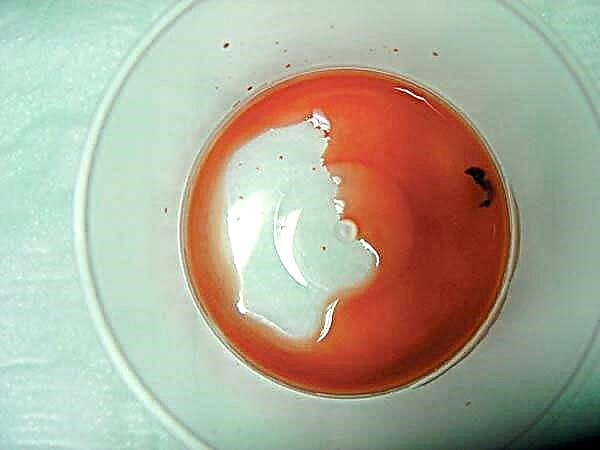
Vomiting in an infant can be a very serious symptom that requires immediate parental response. First of all, it is dangerous due to dehydration. What are the causes of vomiting? When is it important to see the child immediately to the doctor?
Differences between regurgitation and vomiting
Regurgitation is a normal process that does not require treatment, while vomiting is more common with illness. In both cases, the discharge of stomach contents occurs, which leads to difficulties when it is necessary to distinguish between the two processes.
You can find out if a child is spitting up or vomiting by the following signs:
- When regurgitating, a small amount is released, while it is easily separated. The kid after him behaves as usual;
- The baby usually spits up after feeding, and vomiting occurs regardless of the time of feeding.
- Vomiting is very rarely repeated several times, and vomiting attacks are often not single, but multiple.
- Children usually regurgitate unchanged food (mixture or milk) or slightly curdled, and with vomiting, there may be digested food and gastric juice with bile (yellowish liquid).
- The well-being of the child during spitting up is almost always good, and with vomiting it is often worsened.

Causes
Many children occasionally vomit, but, as a rule, it happens only once and does not indicate the presence of a serious illness, so you can help the child at home. But sometimes it can be a sign of a medical condition that requires medical attention.
The appearance of vomiting in infants may be the result of such reasons:
- Fast feeding and overeating;
- Mixture changes;
- Mom's non-compliance with hygiene rules;
- Mom's violation of the diet;
- Introduction of complementary foods;
- Milk intolerance;
- Long and strong crying;
- Piloresthenosis;
- Cough;
- Intestinal infection, gastroenteritis;
- Poisoning;
- Concussion;
- Meningitis;
- Appendicitis.
Vomiting due to overfeeding or fast feeding is quite harmless and appears when more food has entered the stomach of the crumbs than it can accommodate and digest. To avoid the appearance of such vomiting, you do not need to feed the baby more than it should be (if the baby is fed with a mixture), and after eating, you should not bathe the baby or actively play with him for half an hour. If he appears otherwise healthy, there is no cause for concern.
In children under one year old, a new mixture can provoke vomiting. You should only change your diet for a good reason after consulting your pediatrician. In addition, the new mixture should be introduced gradually.

If mom does not follow the rules of hygiene and does not monitor her diet, then these are risk factors for the development of infectious diseases manifested by vomiting. Eating fatty, spicy and salty foods for a nursing mother can disrupt the digestion of the baby.
The baby can react with vomiting and complementary foods. In this case, you do not need to panic if the episode of vomiting was a single one. So the baby's body could react to an unfamiliar product. It is important to start complementary foods with one-component products, not to give the baby food that has been open for a long time, and also always check the expiration dates.
Especially often vomiting occurs with intestinal infections. Diarrhea joins it, which is especially dangerous with large losses of fluid. The disease threatens the baby's life, therefore, requires immediate medical attention. Poisoning is an equally dangerous cause of vomiting.
Vomiting can develop in children and with such serious diseases as appendicitis, meningitis, pneumonia, hernia infringement and others.
With pyloresthenosis, the muscle ring, which is at the transition from the stomach to the duodenum, is thickened, as a result of which it does not allow food to pass into the small stomach. The food stays in the stomach and then comes out with vomiting. Therefore, the baby wants to eat and, despite frequent feeding, the baby's weight decreases, while the milk is not absorbed. With this diagnosis, surgical intervention is necessary.
Concussion can lead to vomiting. If the child has fallen from a great height, lost consciousness, his movements are discoordinated, it is important to immediately consult a doctor.

Symptoms for an immediate visit to the pediatrician
You should see a doctor immediately if your child:
- refuses food;
- sleepy and lethargic;
- his body temperature rose;
- vomiting attacks are repeated more often 3 times a day or there was a repetition within 6 hours;
- loose stools;
- the baby has a swollen stomach or it hurts;
- if there are signs of dehydration: lips, tongue dry, scanty or sparse urination, and urine darker than usual;
- if there is blood in the vomit;
- there is blood or mucus on the diaper.
Do not waste time and do not treat the baby yourself, but immediately call an ambulance.
What to do before the doctor arrives
Since vomiting is dangerous due to the rapid development of dehydration, parents should not just wait for an ambulance or a local doctor, but must ensure that the crumbs of the fluid they need enter the body. It is important to start replenishing fluid loss immediately after an attack of vomiting. For infants, the best way to replenish the fluid lost during vomiting is to apply to the breast.
It is also recommended that children be given solutions from pharmaceutical preparations containing the necessary electrolytes. If you do not have the opportunity to buy a pharmacy preparation, prepare its analogue at home by dissolving salt (a teaspoon without a slide) and sugar (4 to 6 teaspoons) in one liter of boiled water. This solution can be stored for up to 24 hours.

Your child should not be given tea, soda, chicken broth, fruit juice, cow's milk, or even rice water. These drinks do not contain electrolytes lost during vomiting, so they will only worsen the condition.
So, what needs to be done when vomiting in a nursing baby before the arrival of the pediatrician:
- Give your baby breast more often (if breastfeeding).
- More often offer the baby a mixture (if the baby is bottle-fed). You do not need to change the mixture.
- In addition to milk and formula, give your baby 60 to 120 ml. solution with electrolytes after each vomiting attack. You need to give such a solution in small doses through a bottle with a nipple or from a spoon. You can also give the solution using a syringe that does not have a needle.
- If the baby has drunk the indicated amount of the solution, but is still thirsty, continue to feed him the solution until his thirst is quenched.
- If the crumb has pulled out the solution that has just been drunk, try to water the baby again, giving a few milliliters of liquid with short interruptions.
- From complementary foods to a baby over 6 months old, you can give rice, apple puree, crackers, and bananas.
- It is not recommended to give the baby any medications before the arrival of the doctor - antibiotics, medicines for diarrhea, sorbents, prebiotics, antiemetics and others. Many of these drugs can not only "lubricate" the overall picture of the disease, but also cause complications of the baby's condition.
If you think that the baby has been poisoned with drugs or food, you should immediately call the doctor and inform him about the possible causes. Take with you a sample of the substance or the packaging from under it.
Hygiene
- To avoid contamination with germs that cause acute intestinal or infectious poisoning, wash your hands, feeding bottles, cups, spoons and teats often. At the same time, it is better to allocate a special place for them in the house.
- Babies need to wash their hands after using the toilet, before eating food, after outside.
- After feeding, the dishes should be thoroughly washed using soapy water, and in the first year they should be periodically sterilized. All these actions are necessary in order to remove milk residues, because dangerous microorganisms rapidly multiply in them.



